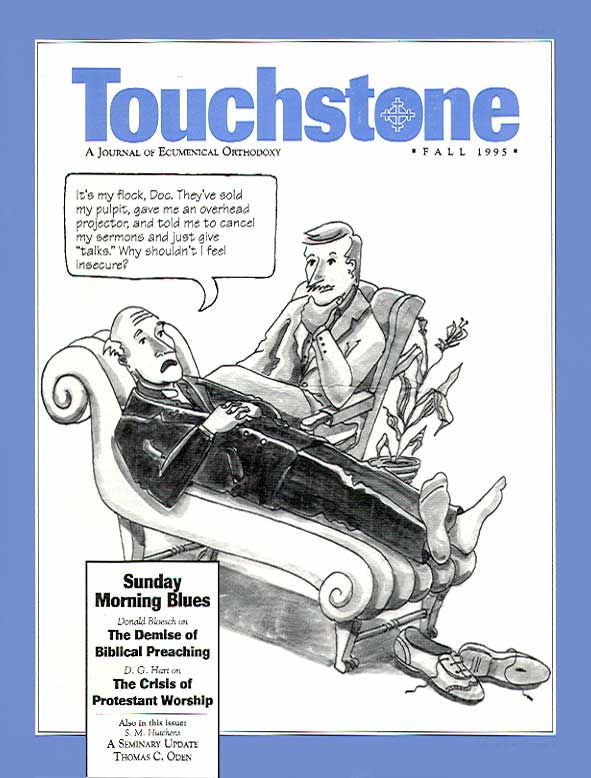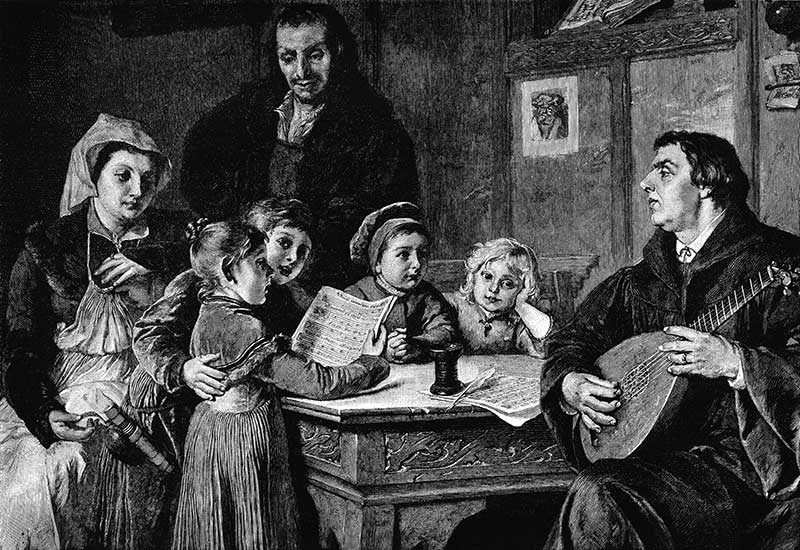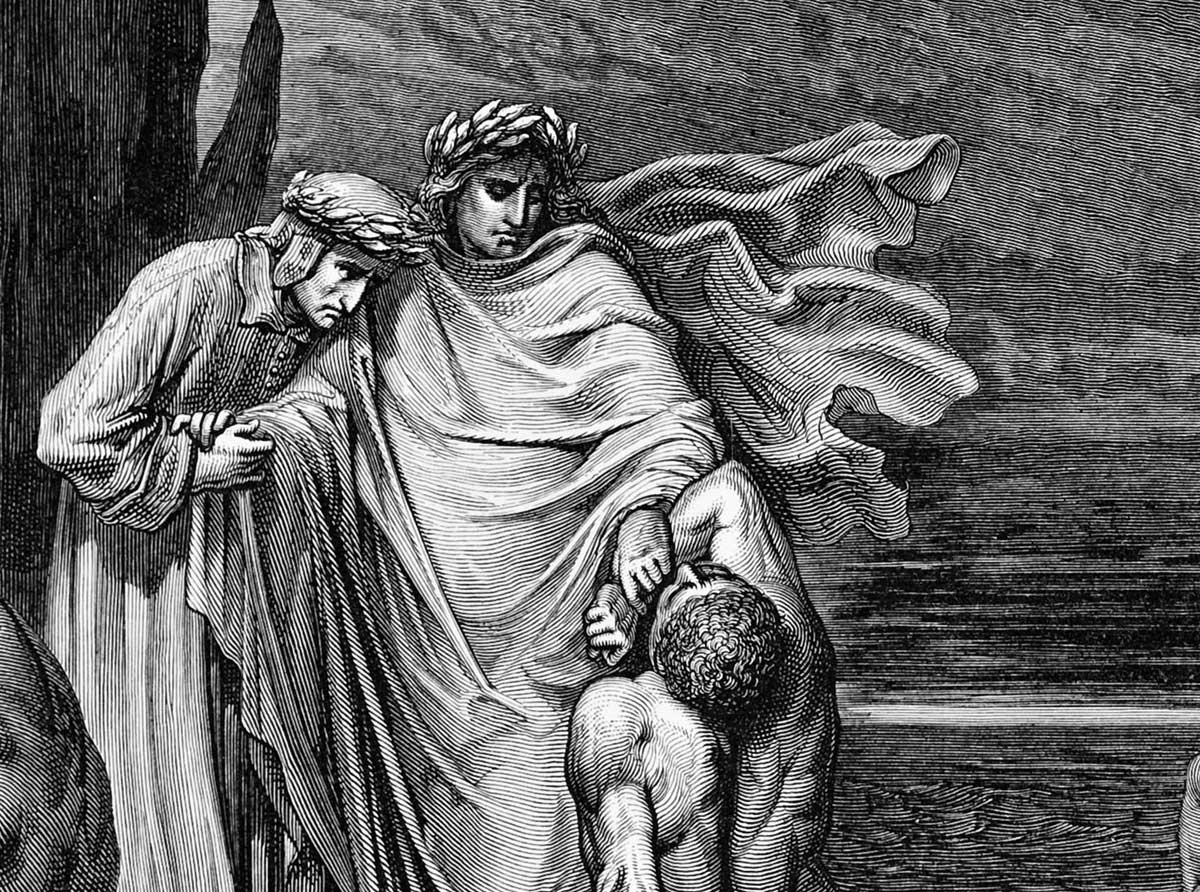Abreast of the Times
The Quiet Modernization of a Divinity School
by S. M. Hutchens
My years at Trinity Evangelical Divinity School, in Deerfield, Illinois, were good, happy ones. I transferred in from another school where the relations between students and faculty weren’t as cordial, and it was refreshing to work under competent teachers, most of whom were not afraid to get to know their students. I stayed to earn two degrees there in the early ’80s.
I was never converted to Trinity’s statement of faith. The problem was not that I was too liberal, but perhaps a bit too “catholic.” When asked to for my personal doctrinal statement for a placement file, for example, I submitted the Nicene Creed and was told this would not suffice. It had to be, like Trinity’s own doctrinal statement, a homemade job that addressed the concerns of evangelicals. I found this odd, but it was consistent with a perennial feature of Trinity itself—a tradition of homemade theology, once done up to the plain and relatively benign tastes of the Evangelical Free Church, but now with a different and far more ominous smell.
The biggest sticking point for me in the old days was the doctrine of autographal inerrancy. It did not seem that basing one’s faith on perished documents—or even on the Bible alone—was a good thing, since that provided no authority for the interpretation of Scripture other than the opinions of private individuals or the disjointed segments of Christendom they represent. During my seminary years I came to agree emphatically with Philip Schaff and the other Mercersburg theologians:
In order that the Scriptures may be taken as the exclusive source and measure of Christian truth, it is necessary that the faith in Christ of which they testify should be already at hand, that their contents should have been made to live in the heart by the power of the Holy Spirit accompanying the word and the church. . . . The Socinians, Swedenborgians, later Unitarians, and other sects, made the same strenuous appeal to the Scriptures as their only authority, but they stood quite off from the true living ground of the Reformation notwithstanding. (Schaff, The Principle of Protestantism, Ch. 1)
In other words, belief in biblical inerrancy, autographal or otherwise, does not protect you from heresy. Only the Holy Spirit can do this, and he does it by binding the Word to the Church. Whatever difficulties this concept might involve for modern Protestants, it is not just “in here,” but “out there”—in the Church as a whole—that the interpretive authority lies, and the interpretation is what makes the difference between a Swedenborgian inerrantist and a Christian.
When I left Trinity to continue my theological studies I was on good terms with everyone there. Although I would have liked to return as a teacher, there was little possibility of it, since I could not fully affirm the doctrinal statement, and was unwilling to finagle my way around it. (Teachers of theology especially have to be thoroughly committed to their schools’ beliefs, their interpretations of the doctrinal statements well within the frame of reason.) The disagreements we had, however, were still brotherly ones, such as those that might exist, say, between a conservative Baptist and a traditional Anglican. That is no longer the case. Trinity has changed.
The World of Theological Modernism
Entering doctoral studies placed me firmly in another and distinctly unbrotherly world, the world of theological modernism that was descending into the advanced state of decomposition now being called post-modernism. This world was founded upon a way of thinking that could barely conceal its hostility to orthodox Christianity, and did conceal it, I became convinced, only because it was still funded by people who expected the professors to make Christian noises, however faint those noises might be. By the grace of God, I was able to take a degree chiefly because I had an advisor who was still a believer and had enough power to protect me from that hostility.
The single most powerful ideological influence on the campuses where I worked during those years was, and remains, feminism. Feminism is not simply, as they say, a “gender thing.” It is a worldview that seeks to unravel and reknit the whole fabric of human (not just Western) history, religion, and culture, which is based, as the feminists have correctly discerned, on the pervasive influence of male-dominated hierarchies—patriarchalism. The greatest and most dangerous of these patriarchal hierarchies is Christianity. Daphne Hampson, a thorough and consistent feminist scholar who has renounced Christianity, is in complete agreement with Christian orthodoxy when she says,
S. M. Hutchens is a senior editor and longtime writer for Touchstone.
bulk subscriptions
Order Touchstone subscriptions in bulk and save $10 per sub! Each subscription includes 6 issues of Touchstone plus full online access to touchstonemag.com—including archives, videos, and pdf downloads of recent issues for only $29.95 each! Great for churches or study groups.
Transactions will be processed on a secure server.
more from the online archives
calling all readers
Please Donate
"There are magazines worth reading but few worth saving . . . Touchstone is just such a magazine."
—Alice von Hildebrand"Here we do not concede one square millimeter of territory to falsehood, folly, contemporary sentimentality, or fashion. We speak the truth, and let God be our judge. . . . Touchstone is the one committedly Christian conservative journal."
Support Touchstone
—Anthony Esolen, Touchstone senior editor











